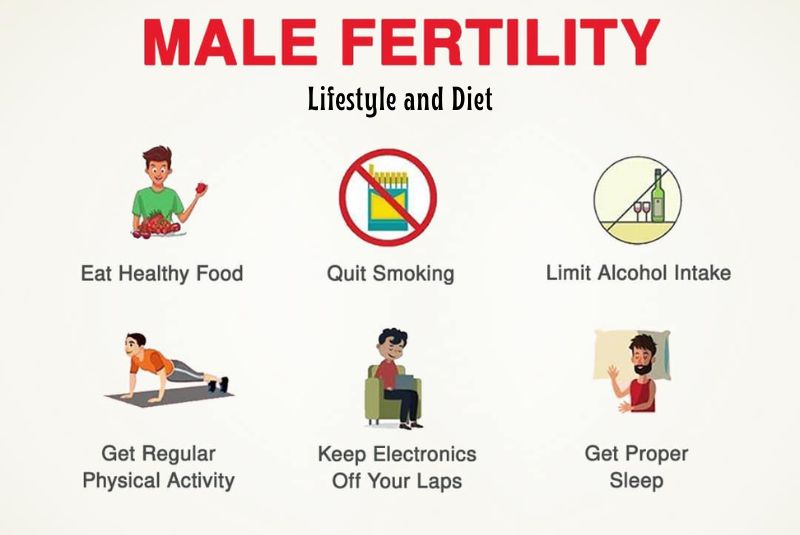The role of lifestyle and diet cannot be understated. For couples aspiring to conceive, understanding the profound influence that lifestyle and dietary habits can have on male fertility is a crucial step towards achieving their parenthood dreams. This article delves into the intricate connection between lifestyle choices, diet, and male fertility, providing insights and guidance for those seeking to optimize their reproductive health.
The Impact of Lifestyle Choices on Male Fertility
a. Smoking and Alcohol Consumption:
Smoking and excessive alcohol consumption have been linked to a range of fertility issues, including decreased sperm count, motility, and morphology. Quitting smoking and moderating alcohol intake can lead to marked improvements in sperm quality and overall reproductive health.
b. Physical Activity and Exercise:
Regular moderate exercise has been associated with enhanced fertility. Engaging in physical activity helps maintain a healthy weight, regulate hormones, and improve blood circulation, all of which contribute to better sperm production and function.
c. Stress Management:
Chronic stress can disrupt hormonal balance and adversely affect sperm production. Practicing stress reduction techniques, such as yoga, meditation, and mindfulness, can help manage stress and support reproductive well-being.
The Nutritional Landscape: Foods for Fertility Enhancement
a. Antioxidant-Rich Foods:
Antioxidants play a crucial role in protecting sperm cells from oxidative damage. Foods rich in antioxidants, such as fruits (berries, citrus), vegetables (spinach, broccoli), nuts (walnuts, almonds), and seeds (flaxseeds, chia seeds), can contribute to healthier sperm.
b. Omega-3 Fatty Acids:
Found in fatty fish (salmon, mackerel), flaxseeds, and walnuts, omega-3 fatty acids are essential for sperm health, including motility and membrane structure.
c. Zinc and Selenium:
Zinc and selenium are micronutrients vital for sperm production and quality. Incorporating foods like lean meats, whole grains, nuts, and seafood can help maintain optimal levels of these nutrients.
d. Folate and Vitamin B12:
These B vitamins are essential for DNA synthesis and cell division. Leafy greens, fortified cereals, and animal products are good dietary sources.
e. Healthy Fats:
Including sources of healthy fats, such as avocados, olive oil, and nuts, in the diet supports hormone production and overall reproductive health.
Optimizing Fertility: Practical Tips
a. Balanced Diet:
A well-rounded diet that includes a variety of nutrient-rich foods is fundamental to promoting male fertility. A diet that emphasizes whole foods, lean proteins, and ample fruits and vegetables can create an optimal environment for reproductive health.
b. Hydration:
Staying adequately hydrated is essential for overall health, including sperm production. Drinking plenty of water helps maintain optimal sperm volume and concentration.
c. Moderation and Portion Control:
Maintaining a healthy weight is crucial for fertility. Overweight and underweight individuals may experience hormonal imbalances that affect sperm production. Portion control and balanced eating habits contribute to weight management.
d. Limiting Processed Foods:
Processed foods high in trans fats, sugars, and artificial additives can negatively impact overall health, including reproductive function. Minimizing processed foods supports fertility goals.
The journey towards parenthood is a shared dream for many couples. By making conscious lifestyle and dietary choices, individuals can actively contribute to their reproductive health and increase their chances of conception. Lifestyle changes, such as quitting smoking, moderating alcohol intake, managing stress, and engaging in regular exercise, alongside a nutrient-rich diet, can create an environment conducive to optimal sperm production and function. Empowered with knowledge and armed with healthy habits, couples can embark on their fertility journey with confidence, nurturing their bodies and aspirations along the way.

